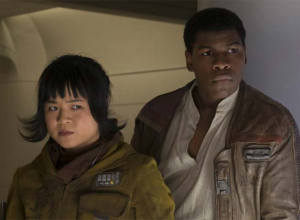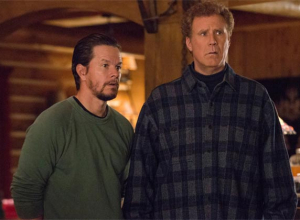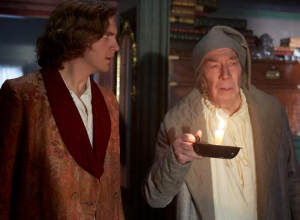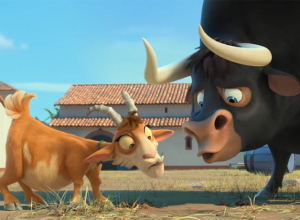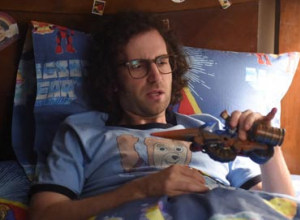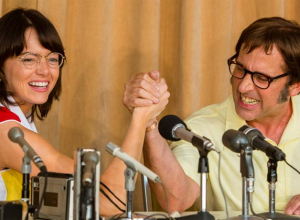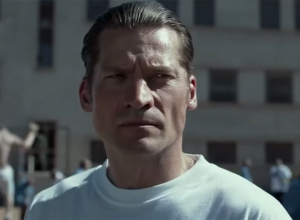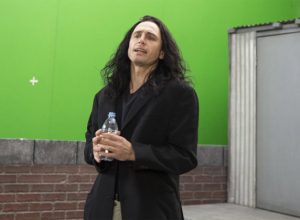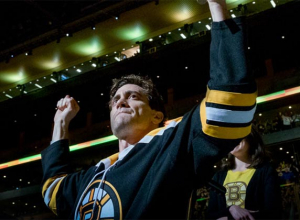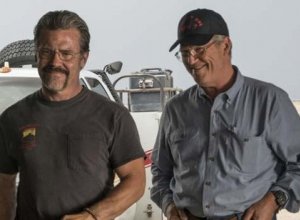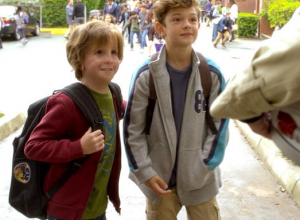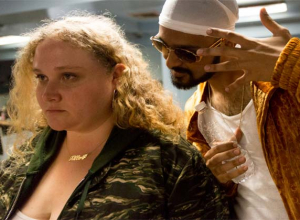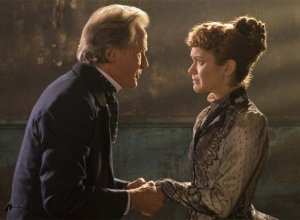The Gift (2003) Review
By Jake Euker
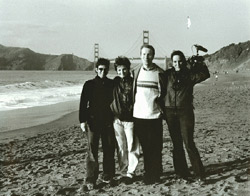
The question is who on Earth would set out to contract this unbeatable foe, and why? By way of an answer, The Gift presents us with two very different individuals: Kenboy, a party automaton who responded to an ad inviting young men to apply at a Los Angeles "sex house," and thus relocated to southern California; and Doug, a demure blond kid who ended up in San Francisco somewhat more innocently, but once there found that he couldn't fit in. Peripherally we meet the members of a support group for the HIV-infected who suffer from heart problems brought about by the disease, and Bill, an amoral older man who runs a "dungeon" in which anonymous sex can be had and where condoms are discouraged.
The Gift tells us the story of these men in a straightforward, unadorned manner that's all the more affecting for its lack of screen pyrotechnics. Doug's story cuts deepest; he didn't so much seek the virus as give in to the don't-ask-don't-tell nature of the crowd he found himself in the company of. When Doug stopped insisting on safe sex, he became suddenly more popular; he met people. With ads for AIDS medications in magazines like The Advocate featuring beautiful men in the pink of health, he explains, the virus looked almost attractive. And a kind of political correctness attached itself to the virus, too: It might be offensive to ask about a partner's status, or for these same ads to show men in ventilators - and it certainly wouldn't make anyone ask for the medication "by name." In one of the most moving scenes, Doug, now HIV-positive, says of the effort to get word out to young people like himself, "Offend us [HIV-positive men]. Please."
Kenboy is another story. He explains his decision to "convert," or actively seek the virus, in terms so facile and tragically stupid that you long to knock some sense into him. To wit, he was tired of worrying about his status; it was easier just to get infected than to have to wonder about it and be picky about his partners. Kenboy's 28th birthday is celebrated during filming, and we see the sling in Bill's basement where he'll take as many men as he can; it's the kind of footage Jerry Fallwell would have a heyday with. (Bill has some of these slings set up outdoors, too, and he calls this "kind of romantic.") In the most chilling scene, Kenboy describes getting the positive result he had expected on his latest HIV test. It's a "relief."
Hogarth has crafted this documentary carefully, and she has the good sense to let the subjects speak for themselves without editorializing. She makes her points quietly, switching back and forth, for instance, between Bill's cavalier description of one of his parties and the absence of condoms there to the following complaint from an erstwhile guest: "I don't play at the parties as much as I use to because I do tend to get sick easier than most people, and some of the diseases I have, they don't know what they are." She even manages sympathy for Kenboy (which I couldn't quite), even while he's setting up "bare-backing" (unprotected anal sex) parties on the Internet, with special designations for "bug-chasers" and "gift-givers."
The Gift played as part of the the Tallgrass Film Festival in Wichita, Kansas, preceding the equally disturbing The Other Side of AIDS. The (largely gay male) audience was visibly shaken by the experience, as was I. It was sometimes tempting, as I watched Kenboy throw his life away with both hands, to leave the screening, but in the end this gift - the film, not the virus - is one worth keeping.
The crew.
Facts and Figures
Year: 2003
Reviews
Contactmusic.com: 3.5 / 5
Cast & Crew
Director: Louise Hogarth
Producer: Louise Hogarth
Also starring: Doug Hitzel, Louise Hogarth
